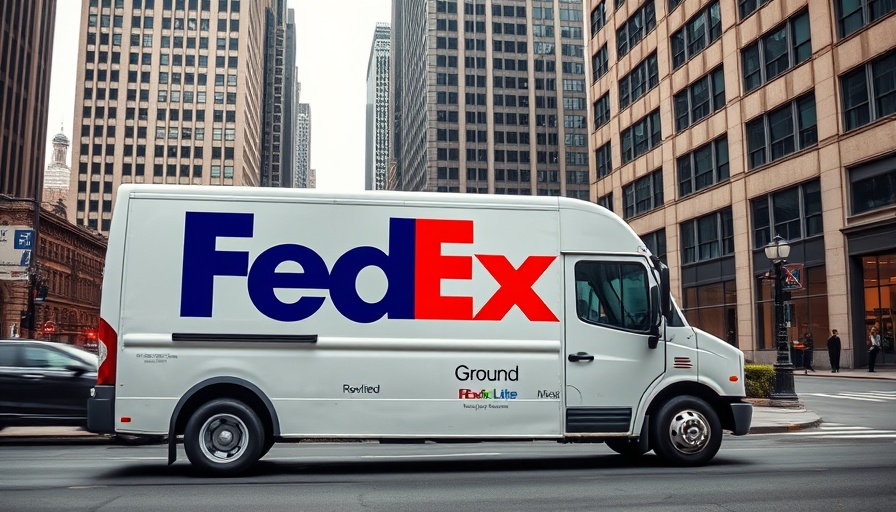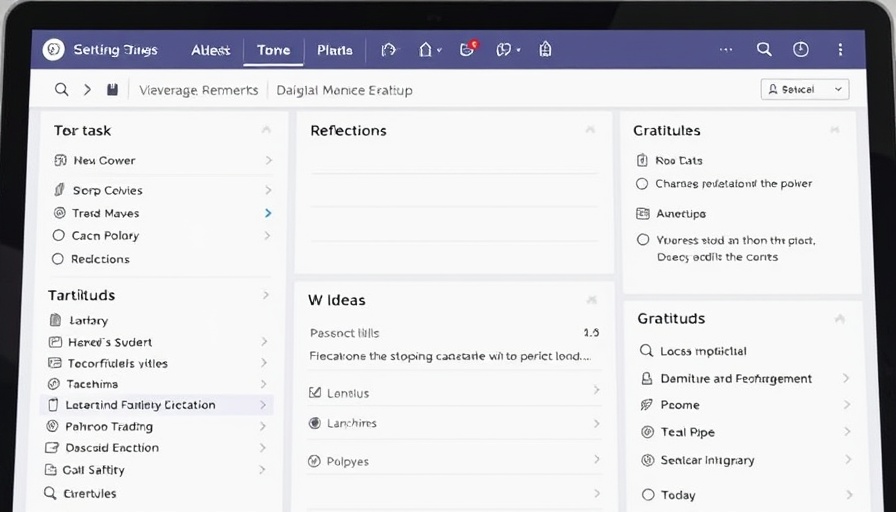
Amazon Revives Relationship with FedEx: A Strategic Move Amidst UPS Reductions
In a noteworthy shift in the delivery landscape, Amazon has announced it will once again partner with FedEx to deliver select large packages, marking the rekindling of a relationship that had cooled off since 2019. This multiyear agreement comes at a time when UPS has indicated a strategic pivot by significantly reducing the volume of packages it delivers for Amazon, cutting that number in half by the end of next year. It’s clear that logistics isn’t just about moving packages — it’s about strategic partnerships and maintaining service levels in an ever-evolving eCommerce environment.
Understanding the Broader Implications of This Decision
Amazon's re-entry into working with FedEx could signal a number of strategic insights for business owners, particularly those generating $2M to $10M in annual revenue. By diversifying its delivery partners, Amazon can buffer itself against potential service interruptions and reliance on any single entity. For entrepreneurs looking to scale operations, a key takeaway here is the importance of building a resilient logistics strategy that minimizes risk through diverse partnerships and adaptable supply chains.
UPS Cuts Back: An Industry-Wide Shift
UPS has made headlines recently with its announcement that it plans to cut back dramatically on Amazon deliveries, a move that aligns with its shift away from lower-margin accounts in favor of more profitable business. The decision highlights a broader trend in the logistics sector where companies are reevaluating their partnerships to enhance profitability. This is particularly relevant for business owners who may be considering their own partnerships within the supply chain. Shifting focus to lower-cost delivery options without compromising service quality can make or break a business in today’s competitive market.
FedEx's New Direction: A Fresh Start in eCommerce
FedEx had previously opted to end its ground and express contracts with Amazon, signaling a shift in its strategy to focus on the broader eCommerce market. Now, with Amazon back in the fold for large package deliveries, FedEx appears poised to capitalize on this revived partnership. For businesses, adapting to new eCommerce strategies—whether it’s identifying partnerships or leveraging technology for efficient logistics—can lead to improved operational efficacy. The decision by FedEx proves that companies must continuously evaluate and adapt their strategies based on market conditions and evolving customer needs.
The Role of Technology in Logistics
As digital currency and fintech trends shape the future of eCommerce, the logistics sector is not immune to technology-driven shifts. For instance, delivering efficient tracking systems and innovative delivery methods creates added value for customers. Business leaders aiming to scale their operations should consider how embracing technology can enhance their logistics efficiencies. Whether implementing new tracking systems or integrating delivery solutions directly into their platforms, the right tech can vastly improve operational workflows.
What Business Leaders Can Take Away
For business owners observing these shifts, the core lesson is clear: adaptability and strategic planning are key. Whether it’s considering which logistics partners to align with, enhancing supply chain security, or leveraging new technologies to streamline operations, staying informed about industry trends is crucial. Making smart, informed decisions today can position your business favorably for tomorrow’s challenges.
As Amazon continues to refine its logistics strategy, it’s essential to keep a keen eye on how similar moves impact the overall marketplace. Whether you're exploring new partnerships, enhancing your operational efficiencies, or simply staying ahead of trends in technology and logistics, there are countless opportunities for innovation within your business. Explore these avenues and consider how they can elevate your operational infrastructure today.
 Add Row
Add Row  Add
Add 



Write A Comment